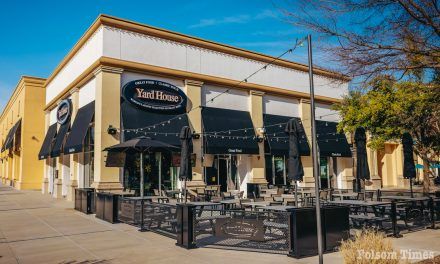Intel Corporation and the Trump administration announced Friday a historic agreement that is reportedly meant to reshape the nation’s relationship with one of its most storied technology companies and raises focus on Intel’s operations globally—including locally in Folsom, where the company has been both an anchor employer and a source of economic upheaval over the past year.
Under the agreement, the United States will purchase 433.3 million newly issued shares of Intel common stock at $20.47 per share, representing a 9.9 percent stake. That price is below the current market value, giving taxpayers a discount and the chance to benefit from Intel’s long-term success. The government’s investment totals $8.9 billion, funded by $5.7 billion in remaining CHIPS
and Science Act grants and $3.2 billion awarded under the Secure Enclave program. Combined with $2.2 billion in CHIPS grants already received, the total federal investment in Intel rises to $11.1 billion.
The government’s stake will be passive, with no Board representation or governance rights, and the U.S. has agreed to vote with Intel’s Board of Directors on most matters. The deal also eliminates both claw-back and profit-sharing provisions attached to earlier CHIPS funds, providing what Intel described as “permanency of capital” as the company advances U.S. expansion plans.
As part of the agreement, the government will receive a five-year warrant to purchase an additional five percent of shares if Intel gives up majority control of its foundry business. Intel emphasized it will continue fulfilling its Secure Enclave commitments, delivering trusted and secure semiconductors to the U.S. Department of Defense. PJT Partners acted as Intel’s exclusive financial advisor in the agreement.
“As the only semiconductor company that does leading-edge logic R&D and manufacturing in the U.S., Intel is deeply committed to ensuring the world’s most advanced technologies are American made,” said Intel CEO Lip-Bu Tan. “President Trump’s focus on U.S. chip manufacturing is driving historic investments in a vital industry that is integral to the country’s economic and national security. We are grateful for the confidence the President and the Administration have placed in Intel.”
Commerce Secretary Howard Lutnick added that welcoming the United States as a shareholder will help create “the most advanced chips in the world.” Since becoming CEO in March, Tan has also been credited with moving quickly to stabilize Intel’s finances, strengthen execution, and restore an “engineering-first culture,” steps that positioned the company for this new federal partnership.
Industry leaders strongly endorsed the announcement, underscoring Intel’s importance to the nation’s technology ecosystem. Microsoft’s Satya Nadella said Intel’s renewed U.S. focus would “benefit the country and broader technology ecosystem for years to come.” Dell Technologies founder Michael Dell called Intel “the most important company to a strong and resilient U.S. semiconductor industry.” HP CEO Enrique Lores said this was “a defining moment for great American companies to lead the world in cutting-edge technologies,” while Amazon Web Services chief Matt Garman described semiconductors as “the bedrock of every AI technology and cloud platform,” praising the administration’s effort to usher in “a new era of American innovation in partnership with American companies.”
National impact, local uncertainty
The agreement comes as Intel has struggled to maintain its standing against rivals Nvidia and AMD, whose valuations have soared during the artificial intelligence boom. Intel’s stock remains well below pandemic-era highs, and the company has been executing a sweeping restructuring plan aimed at cutting costs and sharpening focus.
For Folsom and other Intel campuses across the country, the deal comes at a turbulent time. In July, Intel confirmed more than 500 additional job cuts at its Folsom site, bringing the local total to more than 900 layoffs in the past year. These reductions are part of a global restructuring plan announced last year to eliminate about 15 percent of Intel’s workforce—roughly 15,000 jobs—a process still underway.
The cuts followed Intel’s disclosure that it would sell its longtime Prairie City Road campus and lease back only the space it requires. Once employing several thousand in engineering, research, and product development, the Folsom campus has long been one of the region’s largest private employers. Its downsizing marks a significant shift for the city’s economy and workforce.
Even with contractions, Intel continues to point to major domestic investment. Over the past five years, the company has invested $108 billion in capital projects and $79 billion in R&D, most of it directed toward U.S. manufacturing and process technology. Its $100 billion expansion includes new fabrication plants in Arizona set to begin high-volume production later this year, featuring what Intel described as “the most advanced semiconductor manufacturing process technology on U.S. soil.”
A turning point
The government’s new stake underscores Intel’s central role in U.S. technology and national security. While the deal provides taxpayers with discounted ownership in a company at the heart of the AI race, it also links Intel’s future more closely than ever to decisions in Washington.
At the same time, Intel is working closely with its partners—Microsoft, Dell, HP, Amazon Web Services, and others—to build what it calls a “resilient U.S. semiconductor supply chain.” Those alliances, combined with the federal government’s involvement, suggest that outcomes in Washington and Santa Clara will ripple across the global tech ecosystem and, by extension, local economies like Folsom that have been tied to Intel’s fortunes for more than four decades.
For Folsom, where Intel’s presence has shaped housing growth, retail development, and the city’s identity, the announcement signals another turning point. As national leaders hail the investment as a strategic win, local residents and businesses are left to watch closely how Intel’s evolving role on the global stage will impact the company’s future in the community.
Copyright © 2025, Folsom Times, a digital product of All Town Media LLC. All rights reserved. No portion of this publication may be reproduced, distributed, or transmitted in any form or by any means, without the prior written permission of the publisher.




